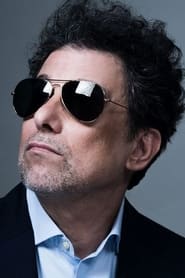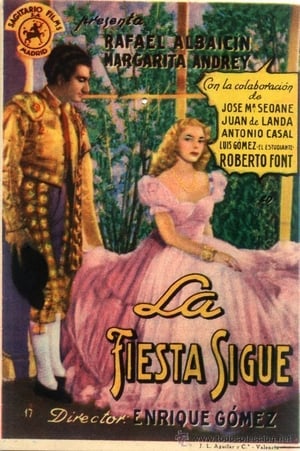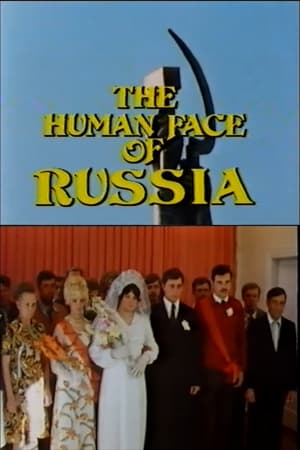
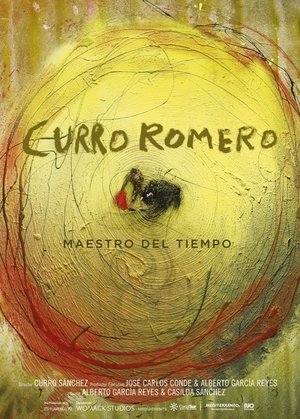
Curro Romero, Maestro del Tiempo(2021)

Movie: Curro Romero, Maestro del Tiempo
Top 8 Billed Cast
Himself
Himself
Himself

Curro Romero, Maestro del Tiempo
HomePage
Overview
Release Date
2021-11-30
Average
0
Rating:
0.0 startsTagline
Genres
Languages:
EspañolKeywords
Similar Movies
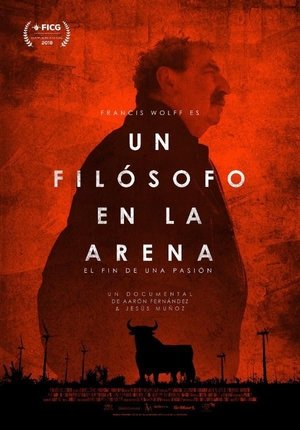 2.0
2.0A Philosopher in the Arena(es)
After his retirement, french philosopher and bullfighting enthusiast Francis Wolff decides to embark on a journey to France, Spain and Mexico joined by two mexican filmmakers who hardly know anything about bullfighting, a culture whose days seem to be numbered. During their road trip, they encounter numerous personalities with whom they reflect on mankind’s relationship with animals and nature, but most importantly on our relationship with death and the meaning of the ultimate journey: life itself.
 0.0
0.0Simon Casas, un vent de liberté(fr)
Before orchestrating the greatest bullfighting seasons as an impresario, Simon Casas was a bullfighter—and thus began his journey.
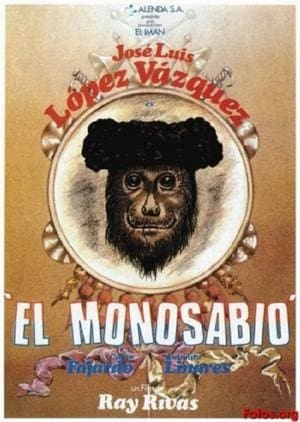 6.8
6.8El monosabio(es)
Juanito, a peaceful fan of bullfighting, has become picador's assistant to see from the same arena the show in which he brags he is one of the protagonists. Furthermore, he believes he has discovered in a neighbor a potential figure of bullfighting sphere.
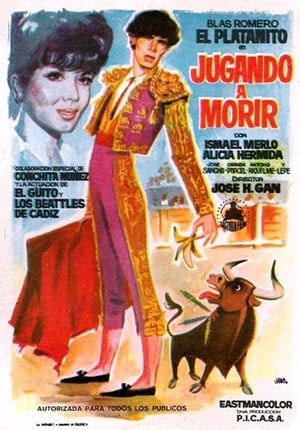 0.0
0.0Jugando a morir(es)
Blas Romero "El Platanito" is a bullfighter who begins to take its first steps in Merida. After a long journey, one day he is lucky enough, his performance is showed on TV and that brings him to top of the charts. From now on, his problems will be centered with the dilemma of having to give up their dreams of making serious classical bullfighting, or jump to a false bullfighting, between slapstick and temerity, which will give offer him numerous well-paid contracts.
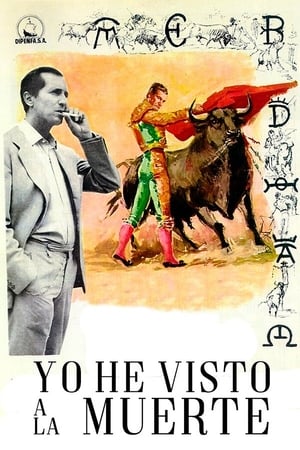 5.0
5.0Yo he visto a la muerte(es)
Four real episodes told by their protagonists: Antonio Mejías "Bienvenida" tells the serious goring he suffered in the Plaza de Las Ventas and his recovery process. Álvaro Domecq Romero evokes the last days of the life of the mare "Splendid", the noble animal that was brave and sensitive companion of his father. Andrés Vázquez tells how the times of the "capeas" were in little villages. With him were many unknown kids, who found an anonymous and obscure death. Finally, Luis Miguel "Dominguín", who was with Manolete, in Linares, the afternoon in which he met his death, evokes that tragic afternoon and glosses the bullfighter's human virtues. The four protagonists have seen the death in one way or another and the four tell the indelible impression that remained on them.
Locked Off(en)
Rave Culture is one of Britain’s great cultural exports, but after its first wave in the late eighties and early nineties, it was soon forced into the underground by stringent new laws and superclubs. But forward 25 years into in the midst of a nationwide purge on the nation’s nightlife, where nearly half of all British clubs have shut down in the last decade, and a new kind of scene has emerged. Clive Martin investigates this 21st century version of Rave, where young people break into disused spaces with the help of bolt-cutters and complicated squatting laws, to suck on balloons and go hard into the early morning. But with the police using increasingly extreme tactics to clamp down on these parties, and more than one fatality causing nationwide media panic, can the scene survive?
The Home Cinema of the Dardenne Brothers(fr)
A “Cinéma, de notre temps” series episode directed by french film filmmaker Jean-Pierre Limosin, originally aired sometime around 2006.
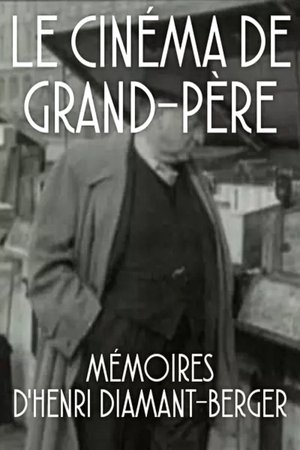 0.0
0.0Le Cinéma de grand-père(fr)
Remarkable life story of Henri Diamant-Berger, a director and screenwriter whose devotion to cinema led him to collaborate with some of the greatest actors and filmmakers of his time.
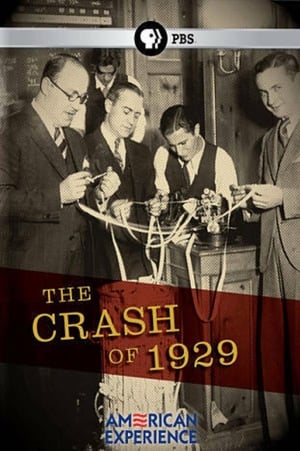 0.0
0.0The Crash of 1929(en)
Based on eight years of continued prosperity, presidents and economists alike confidently predicted that America would soon enter a time when there would be no more poverty, no more depressions -- a "New Era" when everyone could be rich. But when reality finally struck, the consequences of such unbound optimism shocked the world.
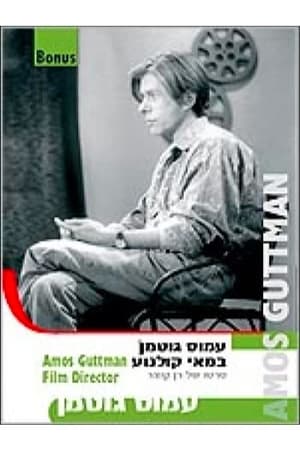 5.0
5.0Amos Guttman: Filmmaker(he)
From 1977 to his untimely death in 1993, Amos Guttman directed six films, all of them deeply personal reflections of his own life. Interviews with lovers, family and friends--including some of the most important people in Israeli cinema--tell the gripping story of a strikingly handsome, charismatic and deeply passionate gay man who has become a revered cult figure in Israeli cinema.Interviews with the late filmmaker and fascinating footage of him on the set convey the same passion that comes through in scenes from his films, lovingly selected by documentarian Ran Kotzer. Like Fellini, Guttman transformed his dreams and everyday conversations with friends and family into integral parts of his pictures. He is most remarkable for his striking and original use of the frame. Every shot is a treasure. Amos Guttman dared to portray subjects that were taboo in his society, and his search for the right of individual expression is the connecting link of his works.
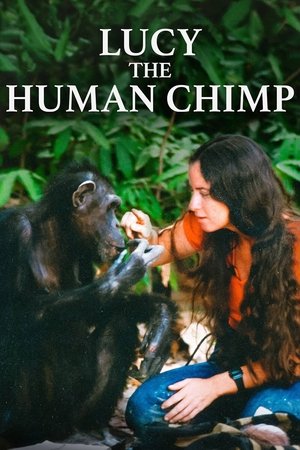 6.3
6.3Lucy the Human Chimp(en)
The profound story of Lucy Temerlin, a female chimpanzee raised as human from birth in a domestic environment, and Janis Carter, the woman who took on the seemingly impossible task of giving her a new life in the wild.
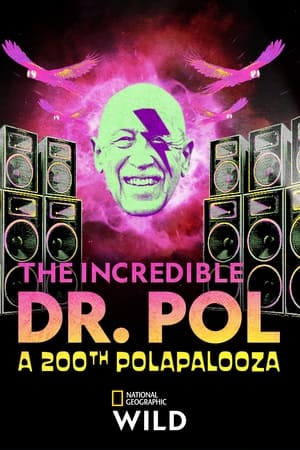 6.0
6.0The Incredible Dr. Pol: A 200th Polapalooza(en)
The one and only Dr. Pol has hit an incredible milestone – 200 episodes! Stroll down memory lane as we look back on highlights from the last decade. Doc, Charles & Diane join in on the fun, watching & reacting to these unforgettable moments right alongside you. Plus, get a first look at never-before-seen footage from the series. It's two jam-packed hours of nonstop Pol-ness you don't want to miss!
Dancing with the Incas(en)
Documentary about the most popular music of the Andes -- Huayno music -- and explores the lives of three Huayno musicians in a contemporary Peru torn between the military and the Shining Path guerrillas.
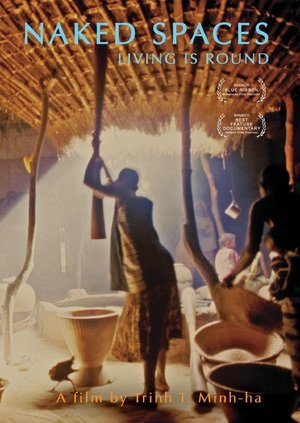 5.0
5.0Naked Spaces: Living Is Round(en)
Shot with stunning elegance and clarity, NAKED SPACES explores the rhythm and ritual of life in the rural environments of six West African countries (Mauritania, Mali, Burkino Faso, Togo, Benin and Senegal). The nonlinear structure of NAKED SPACES challenges the traditions of ethnographic filmmaking, while sensuous sights and sounds lead the viewer on a poetic journey to the most inaccessible parts of the African continent: the private interaction of people in their living spaces.
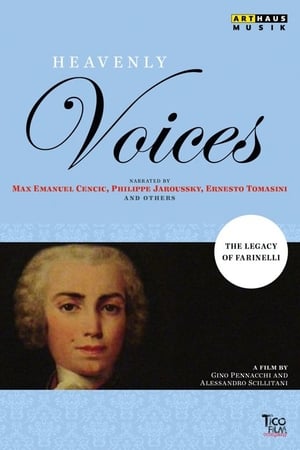 7.0
7.0Heavenly Voices(en)
Heavenly Voices tells the story of the castrato phenomenon, and how the most gifted amongst these singers rose to international stardom. Max Emanuel Cencic and Philippe Jaroussky, two of today's singing stars, take us back in time and talk about operatic entertainment in the Baroque Age. This is illustrated by paintings and prints from the time as well as major performances of today. In this film, many countertenors are featured in famous roles and in interviews, amongst them Jochen Kowalski, Andreas Scholl, David Daniels, Daniel Behle and Valer Barna-Sabadus.
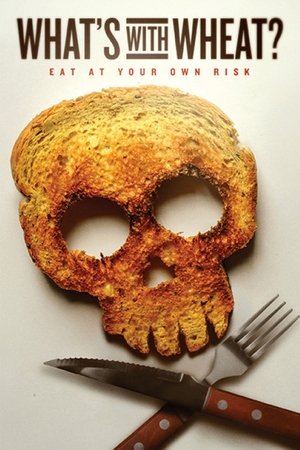 7.0
7.0What's With Wheat?(en)
Why are so many people wheat-intolerant or sensitive to wheat? And why is wheat linked to so many modern-day health problems, when it has been a staple of the human diet for thousands of years? In this documentary, a nutritionist interviews 14 experts, to understand how wheat has changed since it was first cultivated, how these changes could be affecting human health, and how people can break a dietary cycle that could be making them sick.
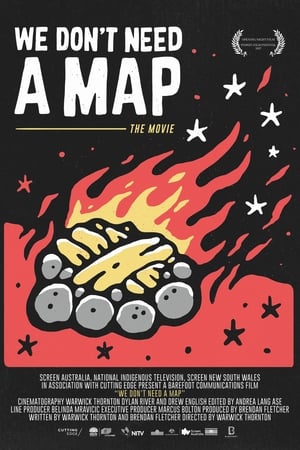 6.7
6.7We Don't Need a Map(en)
Filmmaker Warwick Thornton investigates our relationship to the Southern Cross, in this fun and thought provoking ride through Australia's cultural and political landscape.
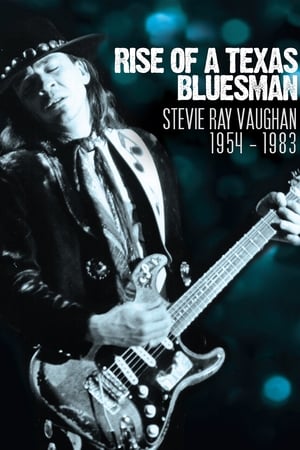 8.0
8.0Rise of a Texas Bluesman: Stevie Ray Vaughan 1954-1983(en)
In the early 1970s a young guitarist from Austin, Texas began to make his name on the local blues circuit, committed to a musical form many thought outdated. A decade on, that same guitarist became an international superstar. A player of passion, energy and awe-inspiring technical virtuosity, Stevie Ray Vaughan not only brought the blues heritage of his home state to a global audience, he reinvigorated the genre itself, introducing it to a new generation of listeners in the process. This film reveals and dissects the formative years of Stevie Ray Vaughan's career; his influences, his first recordings and the bands with whom he honed his craft and traces the history of Texas blues itself, identifying Vaughan's place within this larger tradition. It is the journey of both a musical form and the single-minded musician who brought it firmly back into the spotlight after decades of neglect.


